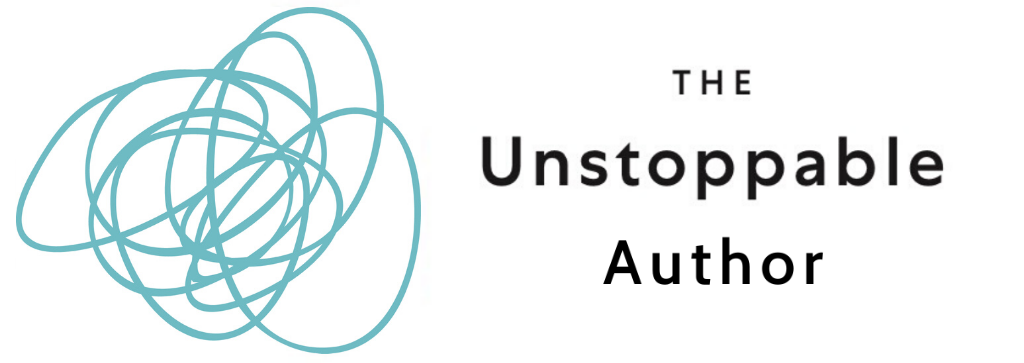“When we look at other people’s creative efforts, we only see the end result – the tip of a very, very large iceberg. We do not see the work, the graft, the false starts.”
Author Nicola Jackson and life coach Teresa Wilson reveal how to develop self-compassion and embrace the mess
Last month, we covered the Control Freak Gremlin that tells you you’re not ready to start. But once you do begin to work on your next story, it is likely you’ll have another little monster to contend with.
This one keeps up a steady flow of negativity, letting you know that: “This is terrible. Really, truly terrible. You should give up now.”
The Hyper-Critical Gremlin never gets bored of criticising. It loves to find fault. This Gremlin wants you to believe that as soon as you begin writing, you must show sparks of brilliance, if not entire conflagrations. And so, when you read back over your first scribblings and find that they’re actually pretty scrappy, pedestrian and maybe don’t make much sense?
“Well,” says the Hyper-Critical Gremlin, “that just proves that you’re no good. You’re only humiliating yourself.”
Even experienced writers have to endure this vindictive creature watching their every move, one eye always on their technique.
“Didn’t you say you were a writer?” it’ll ask, sniffily. “Wow, you’re really bad! Don’t let anyone see that mess or they’ll find out that you’ve been winging it and that actually, you suck at this!”
What a complete drainer. With this drip-drip-dripping negativity, belittling your every effort, you’ll be so busy dodging poisoned barbs it’ll be hard to focus on the road ahead.
Most of us do not enjoy criticism of our most vulnerable selves; it hurts too much. Is it any surprise that many writers can’t take this constant barrage of abuse and do give up?
WHY THE HYPER-CRITICAL GREMLIN IS SO PERSUASIVE
The Hyper-Critical Gremlin has different techniques depending on how much experience you have of the writing process. If you are a beginner, then all this Gremlin has to do to make you quit is cause you to forget one simple fact: You’re a beginner. Which means, you’re supposed to be shit at this.
The beginnings of anything – whether that’s your first creative project or the early drafts of your 10th novel – are supposed to be a mess. This is one of the main secrets of being a writer: you have to develop a high tolerance for bad work because this isn’t just a state that beginners experience. All writers have to write bad work before they can begin to write good work.
ICING THE CAKE BEFORE IT’S BAKED
We hate being bad at something. Whether you’re an absolute beginner or an established author, we’d all quite like to get to the bit where our writing is shiny and amazing, and we can be proud of it. That’s just human nature.
But to expect this stage to come at the beginning is a bit like expecting to ice the cake, decorate it with sprinkles and adorn it with a multi-coloured unicorn, all before you’ve even got the flour out of the cupboard.
Creativity doesn’t emerge from us fully formed and pretty. It starts as a mess and we work from there, taking it through the various stages until it becomes as close to our idealised version as we are currently capable of. But – and we will say this again because it is so, so important – to get through these stages requires us to develop a tolerance for mess.
When we look at other people’s creative efforts, we only see the end result – the tip of a very, very large iceberg. We do not see the work, the graft, the false starts, the huge blob of cake mix. That favourite novel of yours, do you think it always looked like that? That it always flowed so effortlessly? Hell no. It was once a pile of random notes, a terrible first draft, perhaps even a completely different story. The author turned up at the page, month after month, and shaped their raw materials until, via persistence and commitment, they turned that mess into something beautiful.
GETTING PAST THE HYPER-CRITICAL GREMLIN
As is often the case, the Hyper-Critical Gremlin might act tough but really, it’s just terrified of failure. And since the best way never to fail is never to create anything, well, this creature is going to make damn sure that you do not continue on your creative journey. Which is why it’ll nag at you until you swerve the car over to the side of the road and hand it the keys.
Now, to be straight; the Hyper-Critical Gremlin might always be with you. Being creative almost always involves fear and vulnerability. It’s just part of the deal. So, we’re not trying to destroy this Gremlin. What we need is to soothe it enough so that you can carry on with your journey.
AGREEING WITH THE GREMLIN
You know how some martial arts experts teach students how to use an opponent’s strength against them? Well, that’s what we suggest you do with the Hyper-Critical Gremlin. The next time you start to write, and your Gremlin tells you that you’re terrible, simply say, “Yes! You’re right! That’s because I’m supposed to be!”
There’s no power in telling your Gremlin that actually your stuff is amazing. Because right now, it’s probably not true and you won’t believe it. And that’s perfectly okay because it means you are exactly where you are meant to be in this process. There’s far more power in challenging the Gremlin’s erroneous suggestion that you should be brilliant right from the start, which is just a ruse to make you feel depressed and disheartened and give up.
So, from now on, every time your Gremlin tells you that your writing stinks, you just smile sweetly and say, “Of course! Don’t you know? You can’t ice a cake before it’s baked.”
PROMISE YOUR GREMLIN A JOB
The interesting thing about your Hyper-Critical Gremlin is that – once you’ve finished a draft of your creative project and want to start redrafting your work, ready to send to competitions, agents and publishers – you might actually benefit from its keen eye and brutal opinions. While this overly-keen, nit-picking creature is a total killjoy when it comes to early drafts, it can be of great use when you’re editing later versions. That’s because the editing and redrafting stage requires you to look dispassionately at your work – to axe scenes, to change characters and to kill your darlings (which means losing chunks of prose, beloved characters or even entire plotlines to which you are deeply attached but don’t work for the story) – and when it comes to killing darlings, who is a better hired gun than this dude?
So, when it pipes up in the early stages of your journey, just tell Hyper-Critical that you do need its help, but just not right now. Tell it to take a nap and you’ll wake it up when you’re ready.
This is an abridged excerpt from Seven Creative Gremlins: Write your way through doubt and fear to claim your creative life by Nicola Jackson and Teresa Wilson. Find it here for £1.99 ebook/£6.99 paperback.
There are many more Gremlins to look out for, from persuasive Procrastinator to haranguing Hyper-Critical, from terrorising Tyrant to snooty Too-Cool-For-School. Want to find out which Gremlin is derailing your writing journey and how to get past it? Take this fun 1 minute quiz!
How to handle the Hyper Critical Gremlin


